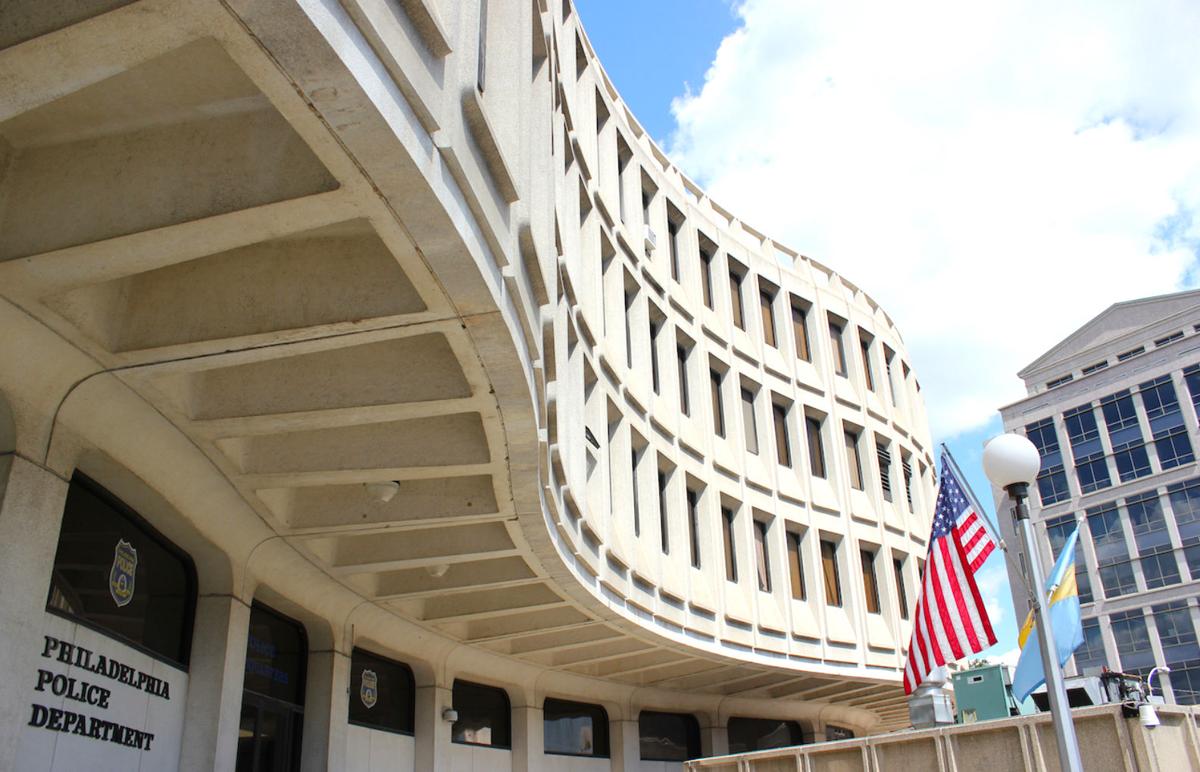
The suspect, who had a lengthy rap sheet, had been carrying an illegal firearm when he saw Pownall and his partner closing in. He tossed his weapon and ran. During the chase, police opened fire. A single bullet struck Williams-Carney in the back, permanently paralyzing him from the waist down.
Investigators would find 10 shell casings from several different guns littering the ground, but Pownall later testified that he had fired the round that hit Williams-Carney. In an ensuing lawsuit, the officer said he didn’t see the suspect drop the weapon and thought the man would turn and open fire. A jury ruled the shooting justified.
Regardless of that outcome, the Philadelphia Police Department’s own policies state that the near-fatal shooting should have been a red flag: an “early warning” sign indicating Pownall’s use-of-force needed closer supervision.
Instead, new records obtained by City & State PA and Philadelphia Weekly show that PPD brass effectively ignored that incident, along with 30 other allegations of misconduct filed by 15 different civilian complainants against Pownall. Pownall’s identity was recently made public by the department, along with a cadre of other problematic officers named in hundreds of complaints between 2013 and 2017, after reporters filed a series of information requests.
These records show Pownall drew more complaints than nearly any of the other 6,300 sworn officers employed by the department – a rate five to six times higher than the average Philly cop.
Although investigators from PPD’s Internal Affairs Bureau ruled that three of these complaints were credible, the worst punishment he received was unspecified retraining. And, thanks to the secretive nature of Philadelphia’s civilian complaint system, the public remained unaware of the growing stain on Pownall’s record.
This relative anonymity would come to an end in 2017, after Pownall opened fire on a second man – David Jones – this time fatally. The officer claimed the man had reached for a gun during another chase, but surveillance footage later contradicted that story. The incident sparked protests across the city and led Commissioner Richard Ross to take Pownall’s badge away.
But in the years leading up to that fatal shooting, Pownall was named in dozens of complaints, accused of everything from unjustified car stops to using racial epithets to excessive use of force. In one incident alone, which was not sustained, Pownall and other officers allegedly dragged a man out of a vehicle, struck him in the groin with a flashlight and stole cash from his wallet.
“It’s outrageous that any police officer with as many complaints as Pownall was still on the force,” said Paul Hetznecker, a veteran civil rights attorney. “I don’t care if they take the position that the complaints are unsustained. They should raise serious concerns within the department.”
Indeed, records show that it’s unusual for most Philly cops to garner more than one complaint a year – regardless of whether they are ever ruled credible. This roughly mirrors data from other big cities: A Boston Globe investigation from 2015 found that the worst officers in that city received roughly one civilian complaint a year.
An analysis of complaint records showed that at least 30 PPD officers appeared to have drawn 10 complaints or more over the past five years. These records also show some, like Pownall and Officer David Dohan, received far more. Dohan is listed in 19 separate complaints since 2013, averaging nearly four a year.
Internal Affairs provided the names of 14 police officers who had together accounted for 158 complaints and 257 alleged offenses over the past five years. While only about 12 percent of the 4,000 complaints complaints filed by civilians since 2013 allege physical abuse, a full third of those made against these 14 officers allege violent misconduct.
All of these officers are male, most are white, and several were even partners or assigned to the same elite units in a few select police districts. A number, like Pownall, were notably linked to excessive-force lawsuits or other questionable shooting incidents that have cost the city hundreds of thousands of dollars in settlements and litigation expenses. Pownall had notably landed on the district attorney’s “do not call” list – cops kept off the stand in criminal cases due to past misconduct.
And all earned at least three complaints or more in a single year, theoretically triggering the department’s own threshold for “early warning” intervention – in Pownall’s case, he averaged three complaints a year, every year, for five years. But records show few of the most-complained-about officers ever faced serious internal disciplinary action, suspension or reassignment.
To date, only Pownall has been fired. But even in the rare instance where the commissioner has sought to fire troubled officers, union arbitrators for the Fraternal Order of Police Lodge 5 have proven successful getting even the most tainted officers reinstated to the force.
Pownall is likely to be next.
“I remember an FOP person looking me right in the eye and saying, ‘The reality is [Ryan Pownall] will be back,’” said Hans Menos, director of the city’s civilian Police Advisory Commission. “He said it matter-of-factly…They’re very confident.”
Early warnings
When Philadelphia Mayor Jim Kenney ordered the public release of civilian complaint data last year, he said it would increase transparency and trust in the police department. But, citing safety concerns, his administration also quietly redacted the identities of officers and complainants to their first and last initial – and, in certain cases, no identifying markers whatsoever – rendering the database largely useless. Worse, the department took this release as a cue to begin denying requests for specific officers complaint histories.
Beginning in January 2018, City & State PA and Philadelphia Weekly attempted to match officer names with personal characteristics contained in complaint records – initials, rank, district assignment, race, sex – in an effort to identify individual officers with high a high frequency of complaints. In April, under pressure from the Mayor’s Office, Internal Affairs agreed to confirm complaint ID numbers associated with a list of officer names compiled by reporters and submitted, at the department’s request, by fax.
However, because the identities of some officers could not be winnowed down from complaint data alone, this process amounts, at best, to a guessing game. The resulting names are only a partial list of police who topped the department for civilian complaints. Over a dozen other still-anonymous officers appear to have recorded as many or more complaints as the police named in this story, but could not be identified by reporters for verification.
This continued lack of transparency means the media and general public are still in the dark about problem officers, even those ultimately found guilty of misconduct. But the identities of officers released by Internal Affairs do show that brass knew that at least some, like Pownall, were being hit with complaint after complaint, year after year.
The department’s own policies say these complaints are supposed to alert supervisors once an officer has hit the threshold for various incident types. A PPD policy memo reviewed by reporters outlines a so-called “early intervention” policy, designed to flag errant behavior. That threshold varies from offense to offense, but its baseline policy states that if an officer accrues three civilian complaints in a year, supervisors should review the officer’s conduct for possible disciplinary action.
But a damning 2015 report on the PPD’s use-of-force policies by the US Department of Justice noted that such chain-of-command intervention systems are “largely untested and unverified.”
Additionally, attorneys, police watchdogs and even a former police captain interviewed for this story said this alert system often amounts to little more than a stern sit-down with supervisors.
“The warning system provides no mechanism for that officer to be disciplined,” Hetznecker said.
PPD spokesman Capt. Sekou Kinebrew insisted the department has “several internal mechanisms” in place to identify problem officers, but declined to elaborate. He acknowledged that 10 to 20 complaints in a few years’ time “could be” a significant number for one officer to accrue, but stressed officer assignments and the nature of the individual complaints should be taken into consideration.
A spokesperson for Philadelphia Police Public Affairs declined to facilitate interviews with the officers listed in this story. But staff inspector Joseph Bologna, who oversaw some of the officers named in this report as captain of the 19th District, said complaints often reflect time in certain high-crime districts. In other words, a high number of civilian complaints could simply be a sign of proactive police work.
“A lot has to do with their assignment – how many contacts they are having with people, the number of interactions they have,” he said.
While he feels sheer volume of complaints alone isn’t necessarily indicative of a rogue officer, Menos said his commission’s audits of Internal Affairs have raised deeper concerns about an investigatory process that finds 98 percent of civilian complaints unsustained.
In past investigations, Menos said, Internal Affairs often discounted witnesses who are relatives or friends of the alleged victim.
“Say your brother was a witness,” Menos said. “Your brother,” in the eyes of Internal Affairs, “will most likely be deemed not independent and therefore not credible, which basically means you have to find a stranger to witness and then come forward about your complaint against police – or have it on camera.”
Conversely, Menos added, an officer’s account of his partner’s conduct is often taken as “a reliable statement” to investigators. Yet, as complaint data shows, sometimes partners are named in the same incidents.
Other discrepancies abound. In its 2015 report, the U.S. Department of Justice admonished Internal Affairs for recording officer interviews through typed notes, rather than audio or video recordings. The practice can lead to “incompleteness, inaccuracies, or unintentional bias,” federal investigators noted.
Other complaints are simply never resolved. Despite his firing, several years-old complaints associated with Pownall are still marked in police records as “pending investigation.”
Experts, like John Jay College criminology professor Jon M. Shane, the failure to react to repeated complaints about the same handful of police raised issues about the upper echelons of the department.
“It calls their supervision into question,” he added. “It calls into question what officers are working on and who they’re working under.”
The Five Squad
During his tenure as captain in West Philadelphia’s 19th District, Bologna supervised four of the officers identified by Internal Affairs. Three were assigned together to elite tactical units in the district, which outsiders say earned a track record for unwarranted stops and seizures under Bologna.
A 29-year veteran of the department, Bologna is perhaps best known to the public for his role in the decade old “Tainted Justice” corruption scandal, which saw members of a narcotics unit accused of stealing cash from corner stores. Infamous video footage shows Bologna instructing his subordinates to disable a security camera during a raid at one bodega, although no officers were ever charged with a crime.
Bologna, however, was later suspended by officials for failing to properly supervise an officer accused of conducting warrantless searches. In the wake of the scandal, he moved to the 19th District.
A proponent of controversial “broken windows” policing, he ordered his new command to ramp up car and pedestrian stops over minor infractions in the hunt for more serious crime. Complaint data suggests no officers were pressed harder to carry out these dictates than members of the district’s tactical squads, plainclothes officers that patrolled neighborhood trouble spots in unmarked cars.
These units were known informally as “Tac-1” and “Tac-2” or, sometimes just the “Five Squad” – a sometimes-troubled nickname for specialized vice or narcotics units operating under close supervision of district captains. Tac unit Officers Ian Nance, Reuben Ondarza Jr. and Thomas D’Alesio would together rack up a combined 25 civilian complaints yielding 37 departmental offenses in just an 18-month window between 2014 and 2015.
D’Alesio alone drewfive physical abuse complaints during that time. In court proceedings, he acknowledged the unit’s near-total purview over the West Philly neighborhood.
“We have pretty much free rein over the entire district,” D’Alesio later said in court proceedings, when asked to describe the unit.
Although then-captain Bologna said he was constantly on the lookout for “patterns” of misbehavior by his officers, today he recalls officers as some of his best. He says they did “a nice job handling complaints from the community” while assigned tough street work.
“On tactical, I would suspect they see more (complaints),” he said. “They worked wherever there were issues and complaints about gang members. The 19th had a number of historic gangs.”
While the 19th District does rank fourth out of 25 police districts for reported crime, its officers generated far more civilian complaints than even higher-crime districts. While Bologna noted that civilian complaints had declined over his tenure – from 73 in 2013 to 54 in 2016 – his district also saw more complaints overall during this time than all but two other police districts. Only Pownall’s old 15th district in lower Northeast Philadelphia, the largest geographically in the city, saw more civilian complaints.
Further, nearly half of the complaints filed in this short span of time detail abuse allegations against the trio often feature similar details: thinly premised car, pedestrian and house searches that escalated into beatings, vandalism, threats or thefts. Some echo the warrantless searches that led to Bologna’s suspension, several more contain a another specific pattern: Tac squad officers breaking into locked glove boxes during car stops.
Some complainants had trouble distinguishing the undercover unit from common criminals. In one instance, a man said he fled from officers because he “thought he was about to be robbed” – only to be beaten by Nance and others, fracturing his jaw.
Another woman said men “dressed in black with weapons drawn” entering her home without identifying themselves “while she was doing her taxes.” Believing “a home invasion was taking place,” she attempted to shield her daughter from the mysterious invaders, a team of police that included Nance. One officer grabbed her by the hair, threw her down and ordered her into her basement.
Both of those complaints were ruled unsustained by Internal Affairs. But a prior complaint involving Nance bears yielded still more similarities. A complainant said officers ordered him off the porch of his own home and, when he refused, they allegedly struck him in the chin and dragged him down the steps in handcuffs. The officers entered his residence without a warrant or his permission and, finding no contraband, released him.
Bologna insists the department did “a really nice job in reference to red-flagging” problem officers, but, when briefed on the number of complaints lodged against these officers in the 19th, he said it was the first he’d heard of any issues.
The former captain said he was hesitant to “put a number” on how many complaints an officer would need to garner in order to draw his attention.
“I mean, it could be one complaint,” he said. “Instead, you want to look to see any parallels. You look for civilians saying the officer is saying the same thing over and over again.”
Priors and payouts
Notably, all three officers have also been successfully sued in court either just prior to or during their time in the 19th District, often over similar instances of alleged misconduct.
Nance was sued by a woman named Angelique Gerald-Porter in 2011 over an incident in which she said he punched her for filming a police stop and, once again, grabbed her hair and dragged her down her front steps and over her nearby 2-year-old child, pinning the toddler in the process. That case was settled out of court for an undisclosed amount.
D’Alesio was taken to court in a wrongful death suit for fatally shooting a man named Efrem Carr after he allegedly fled a car stop in 2012. A subsequent police investigation was inconclusive, but Carr’s mother said her son had been unarmed. The city eventually paid $95,000 to settle the suit in 2013.
Ondarza would eventually be taken to court over a stop in which officers pulled over motorist Angel Seagraves “because her handicap placard was obstructing her view.” Seagraves alleged officers beat her, fractured her ankle, and forcibly searched her vehicle and family members. Police then charged her with a variety of offenses, all of which were thrown out of court for lack of evidence.
Seagraves later sued the officers over the incident, including Ondarza. The city settled the suit last year for an undisclosed amount.
Bologna said that as a commander, seeing the “same officer getting sued all the time, that’s also a pattern.” But he also said he was unfamiliar with the suits mentioned in this story.
He asserting that district captains, and even sometimes the officers themselves, were often left in the dark about pending litigation.
“The city solicitor handles that. Unless they need something from me, I wouldn’t know about it,” Bologna said. “If they’re going to fight it, they might want the officer to testify. But sometimes the officers don’t even know they’re being sued.”
Yet by 2015, the pattern of apparent misconduct by these officers had been pieced together even by those well outside the department, like public defender Michael Mellon, who was assigned to handle criminal defense cases in the 19th District during the years the trio of officers and several others were part of the district’s tactical units.
“We used to see these guys work together all the time. We saw that something was going on with these guys, but we couldn’t figure out exactly what it was because [the PPD] never gave us any additional information,” Mellon said. “Then, they stopped. We never figured out why.”
That year, the tactical unit officers were suddenly reassigned. Coincidentally, an Internal Affairs investigation that year found Ondarza and six other officers had falsified information and ignored departmental guidelines in yet another car stop that had ended with officers allegedly jimmying open a locked glove box. Reached for comment, Ondarza said the complaint against him was sustained because he “turned in paperwork late.”
While some other members of the tactical squads were promoted or rotated into other districts, Ondarza and Nance stayed in the district. D’Alesio also remained in the 19th, where he has continued to rack up civilian complaints – two so far in 2018, one of them for physical abuse.
But it’s unlikely that the reassignments were a reaction to years of alleged abuse. Bologna said that he had “no memory” of the falsification incident. But Bologna defended his overall track record in the 19th. He said he could not immediately recall any instances in which he had ever re-assigned an officer in connection with a pattern of civilian complaints or other alleged misconduct.
Bologna would himself receive a merit promotion to a staff inspector position in 2017, where he still serves today, a 29-year department veteran. He maintains that he emphasized discipline during his time in West Philadelphia.
“If I would see any type of pattern that could possibly cause detriment to the officer or command, I took immediate action,” he said. “The discipline could be sitting them down with their supervisor – to me, that’s still discipline. You talk to them and say, ‘This is going to get you fired.’ You say, ‘We don’t treat people like that.’ It’s like ‘Scared Straight.’”
In June 2017, shortly after Bologna left the 19th for greener pastures, Internal Affairs investigators sustained yet another complaint against D’Alesio. He is alleged to have participated in the beating of a man who had been restrained and pushed up onto the trunk of his car by a group of officers, following another stop.
A witness had apparently photographed the officers and, faced with irrefutable evidence, investigators found the complaint to be credible. But D’Alesio has yet to face disciplinary action for the beating, according to city records.
He remains on patrol duty in the 19th District.
A pattern of abuse
This pattern of behavior was also mirrored by another handful of officers across the city in the 14th Police District, situated in Northwest Philadelphia.
Officers Charles Klink Jr., David Dohan, Lucas Lesko and Brad Momme, who served together under Capt. John Hearn, were similarly charged with conducting high-volume car and pedestrian stops. Together, the four officers would garner 49 civilian complaints in five years under Hearn, whom sources described as another “old-school” police captain. Internal Affairs recorded 80 offenses stemming from those complaints.
As in the 19th District, many of the complaints described searches or other minor encounters that escalated into police beatdowns, sometimes with multiple officers named in the same complaints.
Klink and Dohan were both named in another incident, profiled in an earlier joint investigation, in which one officer was accused of pistol-whipping a man pulled over during a car stop, while screaming, “Fuck your pretty teeth!”
Klink and Lesko were separately named in a pending investigation into an incident in which officers gave chase to a suspect who fled after being caught urinating in a back alley. The pair, along with two other officers, allegedly caught and beat the young man before dumping him at a hospital, the complaint said.
Momme and partner David O’Connor are listed in another complaint in which they accused a suspect of attempting to conceal narcotics by swallowing a baggie of drugs. When the man denied the accusations, one of the officers allegedly choked him out.
And, as in the 19th District, these officers would similarly face few repercussions, even as allegations of misconduct wound up in lawsuits or frustrated other criminal prosecutions.
Momme and O’Connor have also been subject to repeated questioning over their credibility as witnesses due to a pattern of unlawful stops and searches.
They were sued by a former Philadelphia police officer, Herbert Spellman, who said he had been racially profiled and roughed up by the pair in 2013. Although that case is now being retried, a seperate pro sé litigant won a new trial on charges stemming from an arrest made by Momme and O’Connor, citing Spellman’s claims and yet another, earlier wrongful arrest case. Separately, the city recently shelled out $25,000 to settle a fourth lawsuit involving Momme and O’Connor in which a disabled man alleged the pair dragged him out of his car during a stop and kicked him in the legs.
Klink, meanwhile, was profiled in an Inquirer story about unlawfully searching suspects’ underwear, dooming at least one drug prosecution. Another man alleged he was stopped, searched and beaten by Klink for no reason; the city settled the case out of court for an undisclosed amount.
The cheesesteak incident
Numerous other complaints paint more consistent portraits of isolated patrolmen abusing their power in ways big and small.
Other officers topping the department’s complaint list include:
- Officer Joe Ferrero Jr., a patrolman in eastern Center City’s 6th District, has received at least 12 complaints totalling 17 misconduct allegations since 2013. The officer’s record shows an uncanny volume of harassment allegations, three of which were made over the course of a year by the same complainant, a 35-year-old black male identified in records only as “RC.” That complainant charged Ferrero routinely threatened to plant narcotics on him and issued threats after he refused to be the officer’s confidential informant. A separate harassment complaint, filed by a 29-year-old black male in 2014, alleges Ferrero “constantly harasses him every time he sees him and is the source of all his arrests.” Not a single charge has been sustained.
- In North Philly’s 35th District, Officers Eric Ruch, Jr., and David Tamamato accrued 4 complaints together for allegedly unjustified car searches and roughing up suspects during arrests. Of the 14 offenses tied to those complaints, Internal Affairs sustained five of the least serious charges against the duo. Ruch Jr. and Tamamato also racked up complaints on their own. According to one complaint, translated from Spanish, Ruch and other officers responded to a call from a 34-year-old Hispanic male who, along with a family member, had gotten into a scuffle at a local bar. “The police laughed at them and threatened to call Immigration (ICE), if they didn’t leave the bar; they said they were going to shoot and kill them one by one,”the complainant wrote. Investigators ruled the claims unfounded.
- In Southwest Philadelphia’s 12th District, Officer Marc Marchetti has garnered at least 16 complaints (21 alleged offenses) since 2013, which run the gamut from snide remarks to violent arrests. One of his complainants appeared to be a Facebook user, who claimed last year that “she noticed several officers posting inappropriate messages in reference to the District Attorney-elect [Larry Krasner], referring to him as a weasel and scumbag, etc…the officers also posted that they crank-called a law firm associated with the DA to ‘congratulate’ them on the win.” That investigation remains ongoing.
- Officer Kevin Lewis, who also served in Bologna’s 19th Police District, had 11 complaints describing 23 alleged offenses filed against him in just over two years. Bologna said Lewis had done “a nice job” in the district, but said he was eventually taken off patrol duty due to an injury.
The majority of these complaints, none of which were sustained, detail allegations of physical abuse. But one complaint is striking less for its alleged brutality than its bizarre specificity.
A complainant claimed Lewis slapped a cheesesteak out of his hand during a 2009 altercation and, years later, recognized him on the street. The officer stopped his police vehicle and jokingly asked, “Aren’t you the n**ga I slapped a cheesesteak out of your hand? We still talk about it until this day.”
Lewis then reportedly taunted the complainant and blocked his path with his patrol vehicle in an attempt to provoke an altercation, the complaint stated. The complainant said he ignored the remarks and began walking away.
But, according to the description, Lewis then slowly followed the man down the street, making taunting remarks.
“I should get out of my car and punch you in the face,” Lewis said, according to the complaint. “I should slap the shit out of you … I wish you would try something.”
Road to reform
Shane, from John Jay College, said it’s important to keep in mind that policing a city the size of Philadelphia – which records tens of thousands of violent criminal complaints every year – is not easy.
“You’re working in an environment that is fraught with uncertainty, ambiguity, discretion and a constitutional provision that allows anyone to complain about anything you do,” he said.
These facts are also why so many police unions have fought to keep investigations into misconduct in-house. Complaints filed by police and staff within the department and complementary records of investigations into these complaints have never been made public.
But Shane added that a completely closed disciplinary system inevitably createe conflicting interests when it comes to actually punishing bad cops.
“I think it’s largely rooted in the culture of ‘I’ve walked in your shoes,’” he explained. “Internal Affairs wants to have a heart for officers who have a difficult job.”
Yet the issue of even naming officers associated with misconduct remains controversial, even amongst some nominal reformers.
Menos, the Police Advisory Commission director, cautioned against unrestricted access to officer’s identities, recalling protesters who showed up at Pownall’s family home last year in Northeast Philadelphia after the killing of David Jones. He worried that outing officers over complaints without any contextual information would result in similar outbursts.
Menos instead advocated in favor of encouraging department brass and FOP members to commit themselves to more serious disciplinary reforms, but also acknowledged that identifying officers associated with repeated misconduct could encourage these reforms.
“What I’d prefer is for confidence to be built in the current system, which says that they hold people accountable through due process and thorough investigations. But if that can’t happen … other methods might be more effective,” he said. “Maybe this will have a good, chilling effect.
TWITTER: @MAXMMARIN & @RW_BRIGGS




